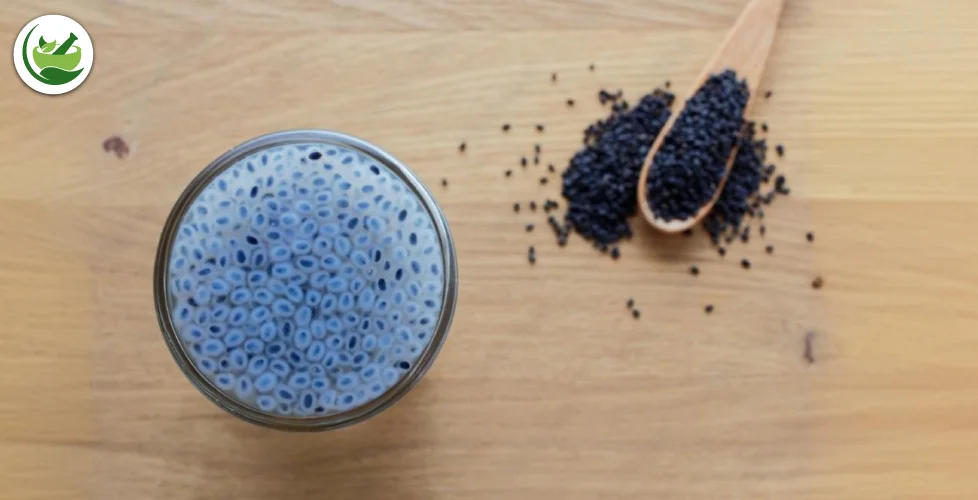
When it comes to incorporating nutrient-dense seeds into your diet, Tukmaria and basil seeds are often mentioned for their health benefits and culinary versatility. However, there can be confusion about whether these seeds are the same or if they have distinct characteristics. In this blog, we’ll delve deeper into the similarities and differences between Tukmaria (Sabja seeds) and basil seeds and explore their unique benefits to help you make an informed choice.
Related blog The Nutritional Benefits of Tukmaria Seeds: A Comprehensive Guide
What Are Tukmaria and Basil Seeds?
Tukmaria, also known as Sabja come from a specific variety of basil used in Indian and Southeast Asian cuisines, characterized by their gelatinous texture when soaked. Basil seeds, a more general term, refer to seeds from various basil plants, also known for their similar texture and versatility in different culinary applications.
Tukmaria Seeds:
Tukmaria, also known as Sabja seeds, are derived from the Ocimum basilicum plant, a type of basil commonly found in India and Southeast Asia. These seeds are black and have a unique property: when soaked in water, they swell and develop a gelatinous coating. This texture makes them popular in traditional drinks and desserts. Tukmaria seeds are often used in Indian sweets like falooda, a chilled dessert made with milk, rose syrup, and other ingredients.
Basil Seeds:
Basil seeds, often referred to as sweet basil seeds, come from the same Ocimum basilicum plant but can also include seeds from other basil varieties. These seeds also have a gelatinous texture when soaked, similar to Tukmaria. The term “basil seeds” is more general and might refer to seeds from various basil plants used in different culinary traditions.
Related blog Basil Seeds and Tukmaria: How They Compare and Where to Use Them
Similarities Between Tukmaria and Basil Seeds
- Gelatinous Texture: Both Tukmaria and basil seeds are renowned for their gelatinous texture when soaked in water. This characteristic is due to their high soluble fiber content, which forms a gel-like substance. This property makes them ideal for adding a unique texture to beverages and desserts.
- Nutritional Benefits: Tukmaria and basil are rich in dietary fiber, which supports digestive health by aiding in bowel regularity and promoting a feeling of fullness. Both types of seeds are also low in calories and packed with antioxidants, which help combat oxidative stress and support overall health.
- Hydration and Detoxification: Due to their high water absorption capacity, both seeds are excellent for hydration. When soaked, they expand and help retain moisture in the body, making them beneficial for detoxification and maintaining fluid balance.
- Versatility in Recipes: You can use both Tukmaria and basil seeds in a variety of recipes. Add them to drinks like smoothies, juices, and herbal teas. Incorporate them into desserts such as puddings, yogurt, and fruit salads, or use them as toppings for various dishes.
Differences Between Tukmaria and Basil Seeds
- Plant Variety and Origin: While both Tukmaria and basil come from basil plants, Tukmaria specifically refers to seeds from a particular type of basil used predominantly in Indian and Southeast Asian cuisine. On the other hand, basil seeds might come from a range of basil varieties and can be used in different culinary contexts.
- Flavor Profile: Tukmaria seeds have a mild, neutral flavor that complements both sweet and savory dishes without overpowering other ingredients. Basil seeds, depending on their variety, might have subtle flavor differences, but they generally maintain a neutral taste similar to Tukmaria.
- Culinary Applications: Traditionally, recipes in Indian and Southeast Asian cuisines, like falooda, use Tukmaria seeds to enhance desserts with their gelatinous texture. In contrast, people use basil seeds in a broader range of international dishes, including salads and smoothies, and their usage can vary depending on the type of basil they come from.
- Availability and Regional Differences: You can find Tukmaria seeds more commonly in Indian and Southeast Asian grocery stores, though they might not be as readily available in other regions. In contrast, you can find basil seeds in a wider range of international and health food stores.
Related blog Top 10 Tukmaria Seeds Benefits for Your Health
Unique Benefits of Tukmaria and Basil Seeds
- Digestive Health: Both types of seeds are rich in soluble fiber, which promotes digestive health by supporting regular bowel movements and reducing constipation. The fiber content also aids in maintaining a healthy weight by promoting satiety.
- Blood Sugar Regulation: Studies suggest that the soluble fiber in Tukmaria and basil seeds can help regulate blood sugar levels. This makes them a valuable addition to the diet for individuals managing diabetes or looking to stabilize their blood sugar.
- Anti-inflammatory Properties: Both Tukmaria and basil possess anti-inflammatory properties, which can help reduce inflammation in the body and support overall health. This can be beneficial for managing chronic inflammation and supporting immune function.
- Skin Health: The antioxidants found in Tukmaria and basil seeds can help combat oxidative stress and support skin health. Regular consumption of these seeds may contribute to a clearer complexion and overall skin vitality.
- Hydration Support: Due to their high water absorption capacity, Tukmaria and basil seeds can help maintain hydration levels in the body. This is especially useful in hot climates or for individuals who need extra hydration support.
How to Incorporate Tukmaria and Basil Seeds into Your Diet
- In Beverages: Add soaked Tukmaria or basil to beverages like lemonades, smoothies, or herbal teas. They add a unique texture and boost the nutritional value of your drinks.
- In Desserts: Use them as a topping for yogurt, puddings, or fruit salads. They not only enhance the texture but also add nutritional benefits to your sweet treats.
- In Cooking: Incorporate them into soups, stews, or even baked goods to enhance the nutritional content of your meals. Their versatility allows them to blend seamlessly into various recipes.
- As a Snack: Toasted seeds can be a crunchy, healthy snack on their own or used as a topping for salads and savory dishes.
Related blog The Nutritional Benefits of Tukmaria Seeds: A Comprehensive Guide
Conclusion
Tukmaria and basil seeds, while similar in many ways, are not identical. Tukmaria specifically refers to a type of black basil seed used primarily in Indian and Southeast Asian cuisines, while basil is a broader term that can encompass seeds from various basil varieties. Both types of seeds offer impressive health benefits, including digestive support, hydration, and anti-inflammatory properties.
Understanding the unique characteristics and benefits of each type of seed can help you make the best choice for your dietary needs and culinary preferences. Whether you opt for Tukmaria or basil seeds, both can be a valuable addition to your diet, enhancing both flavor and nutritional value in a variety of dishes. Enjoy experimenting with these seeds and reaping the benefits they have to offer.






